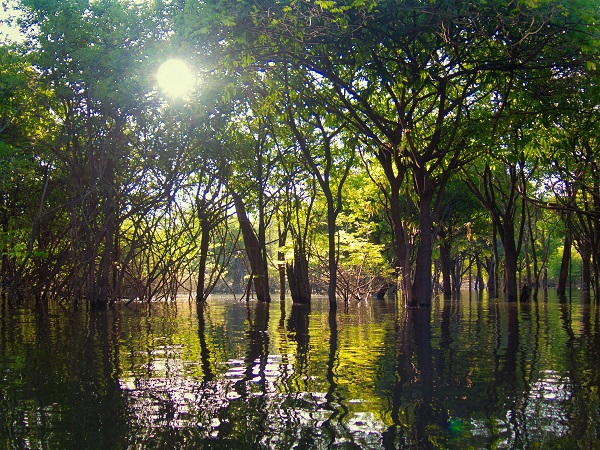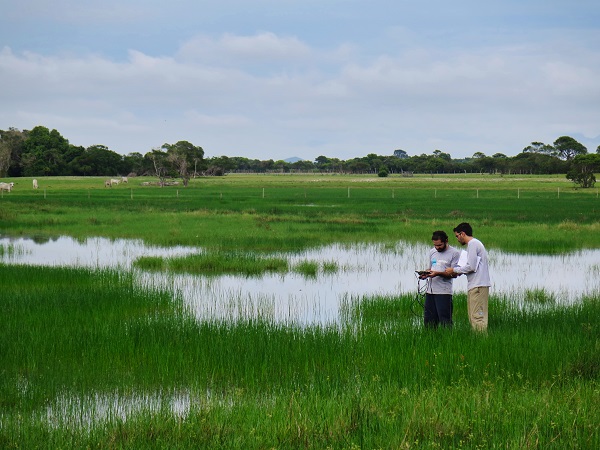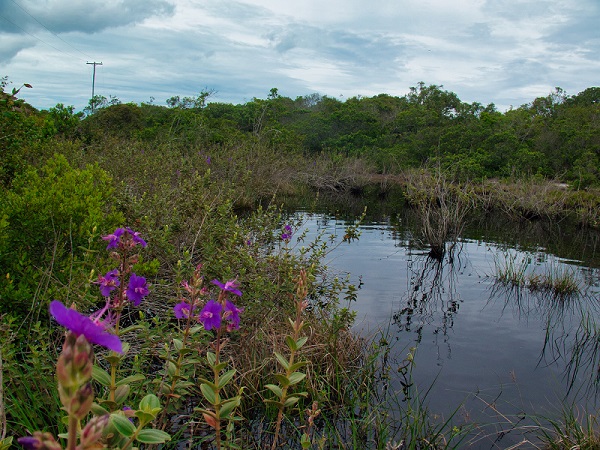Ecosystem Processes in Inland Aquatic Environments
The study of ecosystem processes is key to understand the functioning of aquatic environments. Some such processes include nutrient cycling, carbon balance and trophic dynamics under normal and adverse environmental conditions, such as high temperatures, changes of organic matter input, eutrophication, etc.).
Bacteria, phytoplankton and zooplankton play a key role in nutrient cycling and productivity of aquatic environments. The community of planktonic bacteria degrades organic compounds through biochemical processes, such as methanogenesis. Besides, they provide an alternative pathway of energy and matter to higher trophic levels of the aquatic food chains through the microbial loop. The phytoplanktonic community responds for a significant fraction of the primary productivity of aquatic ecosystems. Their carbon fixation via photosynthesis is the backbone of the food chains. Moreover, the phytoplanktonic microalgae influence nutrient levels in the water, and respond for the largest share of the consumption of phosphorus and nitrogen. The zooplankton are the primary consumers of the aquatic trophic chains. While consuming phytoplankton, they promote matter and energy flow from the producers to the higher trophic levels. Therefore, the secondary production of the zooplanktonic community is key to understanding productivity and functioning of aquatic environments.
We study food webs and biogeochemical cycles to understand the role distinct communities play in functioning of tropical and subtropical Brazilian aquatic ecosystems. We do field and lab monitoring and experiments to understand the influence of environmental changes (e.g., temperature, salinity, nutrients, rainfall) on the activity of planktonic communities. Some preliminary results indicate the importance of diversity, especially functional diversity, to the maintenance of ecosystem processes in face of environmental changes. We believe that understanding the role of species in ecosystem processes is fundamental in a global change scenario.
<< Previous Next>>






